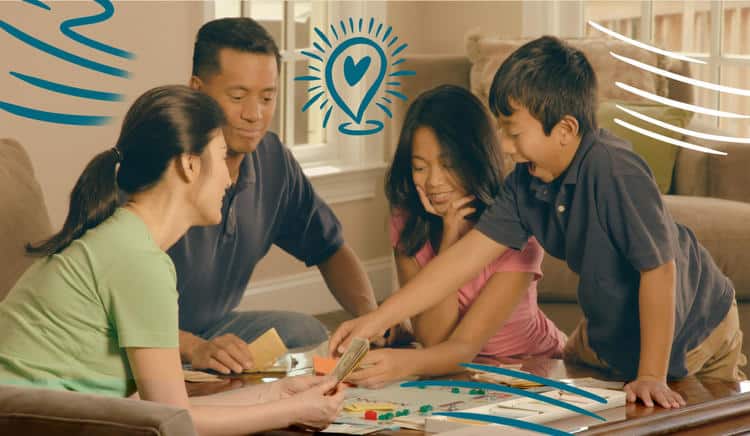
As we come closer to the start of school, all of our area schools have distance learning in their plans for opening back up. Students and parents have been given a choice for either complete distance learning (virtual school) or a mixture of in-person and distance learning. All the distance learning plans have been made with the idea that every student needs to understand how to learn from home if the schools have to close their buildings again due to the pandemic.
This poses so many different problems for parents, students, and other family members, such as grandparents and extended family, as well as friends. Working parents need to be at work while their children still need to be in a learning environment that will promote good education when not in the classroom. But to do that will bring an even greater amount of time in front of a screen. Screen time has become the most challenging thing to manage now for parents and caregivers. In fact, it is very easy to see that screen time is a problem for everyone!
Whether you are watching TV, working on your computer, using your smartphone for social media, gaming, email, texting, etc., all of us are spending the majority of our days in front of some type of screen. And let’s just admit it, it is having some kind of effect on us. When TV became a household necessity in the 1950s, Americans quickly gathered to watch the entertaining programs. “In fact, in 1951, child psychologist Eleanor F. Maccoby found that children were watching about 2 1/2 hours of television a day during the week and as much as 3 1/2 hours on Sundays. About six million teenage television viewers were captured for 2 1/2 hours every weekday by ‘Bandstand’ (Later renamed American Bandstand).” Today’s teenagers are spending 7+ hours a day on average screen time, which does not include school work. It is easy to see how 70+ years of some type of screen device has shaped our culture and society.
If you think that screen time is just a problem for children and young people, think again. Working adult spends more than 12 hours a day in front of a computer screen, TV, and smartphone. Due to the amount of time computers are needed for work, most of this time is work-related. Yet, according to Nielsen data published by The Economist, screen time is highest for America’s senior adults. They spend a larger portion of their days with their eyes pointed at devices.
What is happening to us with all this screen time? Basically, we are living our lives in a false sense of reality. Whether it’s a teenager immersed in Instagram or TikTok, or a senior adult reliving “the good ‘ole days” watching Westerns, all this screen time is doing the same thing to all of us. We are becoming more and more isolated. And, psychologically, we are becoming more and more lonely and depressed. During this new era of social distancing, distance learning, isolation, and quarantine, these issues are growing more and more problematic.
As Christ-followers, Romans 12 says that we are not to be conformed to this world, but we are to be transformed through the renewing of minds to become more Christ-like. Would Jesus watch Westerns all day? Would Jesus constantly be on Instagram and TikTok? I’m sure he would love to watch a good Western. And we would find Jesus on Instagram and TikTok. But that’s not where Jesus would spend all of His time.
We have got to set some limits!
Earlier this year, Focus on the Family published a great article giving parents really important guidelines for monitoring the screen time of their children and teenagers. This is extremely needed, with now even more screen time added due to distance learning. They suggest that children and teens should not have any more than 2 hours a day of nonacademic screen time a day. To set these limits, you’ve got to become even more observant of your child’s activities. This goes for grandparents and extended family and friends, too, who will help watch these young students during distance learning.
You need to observe how and when they engage with technology and screens. Set firm boundaries for the use of computers, smartphones, and tablets. Be watchful of their temperament and emotional state after disengaging from these devices. Many will face emotions like anger and sadness. Watch their sleeping patterns. Give them alternatives to screen time like playing a game, being outside, taking a walk, or an outdoor field trip. Here is a list of 50 games and activities you can do with your kids.

The biggest thing we’ve all got to do for these kids to be intentionally engaged adults in their lives. So don’t throw your hands up in the air and quit when it gets hard. Children and students need our help to set the right boundaries. We need to be an example for them and be right there with them through this. I know this will be extremely hard for single parents who have to work. Partnerships with loved ones and close friends are a much-needed resource to help these kids through these tough times.
For us adults, we need some limits too. It is suggested that we limited our screen time to only 3 hours a day outside of work-related activities. And for senior adults, limited TV time is a must. And you need to increase the amount of time you are either with or talking with others. Isolation leads to depression. Depression increases or exasperates health issues.
Pastor Gordon Small admonished Sunday, August 8, 2020, from Hebrews 10:25 to not forsake the assembling ourselves together. If you missed his message, you can watch it here.
The Lord gives us this command because He created us as social beings. We need people. He didn’t create us to be isolated. We need to be around the people of God and have fellowship together to encourage each other, hold each other up, and speak the Word of God to each other (Ephesians 5:19). Just watching a church service online, although that is good when you can’t come to church, does not replace being with the Body of Christ.
During this time of increased screen time, I hope you will honestly evaluate the amount of time you spend in front of devices. And you will honestly admit the effect your screen time is having on your life. From there, ask the Lord to help you set the right boundaries and limit your watching. I know you will find more peace, more joy, and more contentment in your life.










